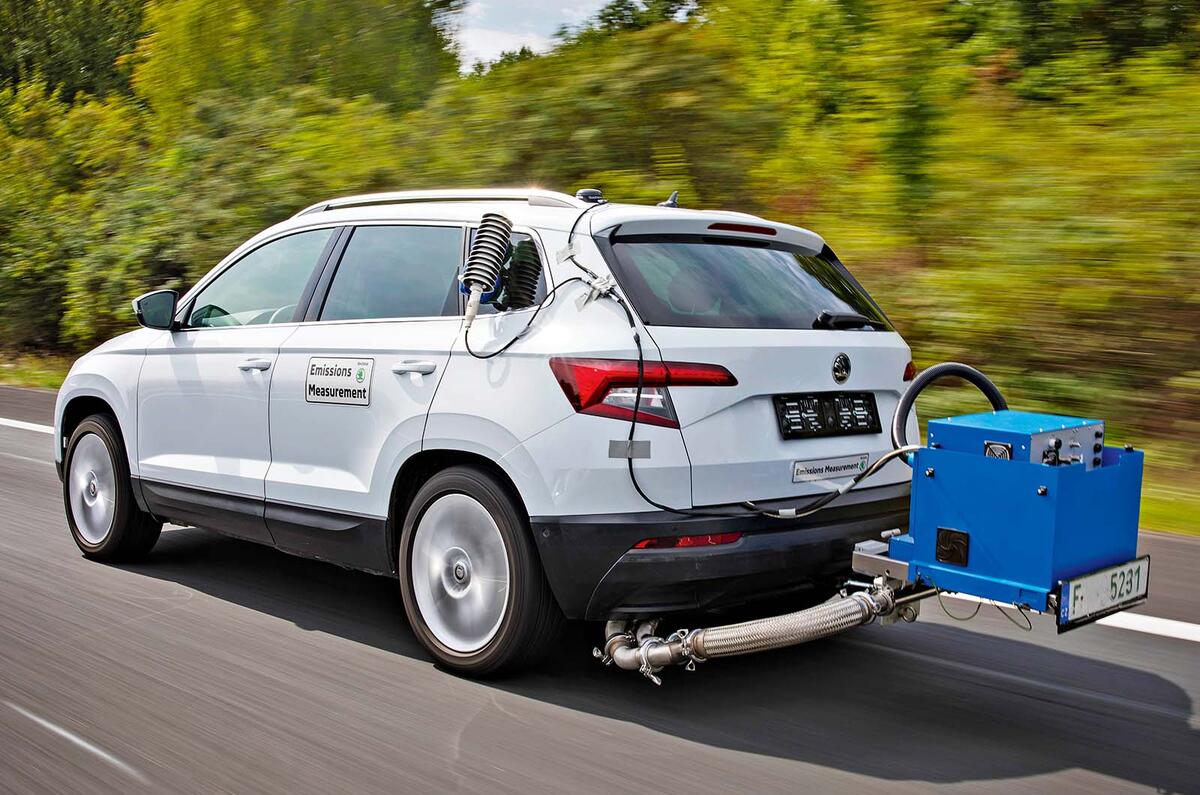Car makers will be celebrating after the European Union provisionally agreed the final wording of the new, softer Euro 7 emissions that rolls back many of the plans of the original proposal.
The agreed new Euro 7 standards have kept the emissions limits from Euro 6 for new cars and vans, but more importantly have removed the need for more stringent real-world testing standards that car makers argued would have added hundreds of euros to the price of a car if they were to become law.
The new agreement also pushes back the implementation of the new standards from 1 July 2025 to a new date two years after the regulations are finally voted in law, meaning 2026 at the earliest for cars and vans.
Important changes over Euro 6 include limits on the amount of particles emitted by braking and tyre wear, including for electric vehicles. Euro 7 also imposes the fitment of battery monitoring systems to ensure the car meets durability targets, as well as mandating that combustion-engine vehicles are fitted with on-board monitors that ensure emissions control devices are not being tampered with.
“The European vehicle industry welcomes the planning certainty,” said the European Automobile Manufacturers’ Association in a statement that played down any jubilation.
The agreement has been thrashed out in a closed-door ‘Trilogue’ between the European Commission, the Council of the European Union and the European Parliament ahead of formal approval. However, the European Association of Automotive Suppliers (Clepa) said in a statement that “further changes are not expected”.
Clepa is among those expressing dissatisfaction with an outcome that some campaigners have described as a victory for the car lobby. “More ambition would have been technically and economically feasible,” said Clepa in a statement. Suppliers generally win more business when emissions regulations are tightened and lobby groups had argued that most of the original proposal was doable. “This agreement removes most of the Commission’s proposal,” it said.
Brussels-based environmental campaign group Transport & Environment described the agreement as a “shameless capitulation” in a statement. The Euro 7 standard agreed by law makers “will allow car companies to greenwash vehicles that are virtually no cleaner”, said Lucien Mathieu, cars director at T&E, in a statement.
Car makers, however, have argued that the original proposals would have cost them millions, forcing them to direct funds to combustion engines and away from electrification.
The car makers warned that the proposals would have disproportionally affected small combustion-engine cars, which are harder to electrify without significantly increasing the cost. “It literally makes it impossible to continue with a small [ICE] vehicle as it currently stands,” Volkswagen brand boss Thomas Schäfer told Autocar earlier this year.
The proposals would “make dying technology prohibitively expensive”, added Schäfer.
VW, BMW and others had argued that the greatest cost would be incurred by the extended test requirements – for example, increasing the temperature window in which the car is tested as well the elevation height.




Join the debate
Add your comment
This is not a win for the car manufacturers, it's a loss. The more leegacy car companies drag their feet over going fully electric, the further behind they will fall. The same goes for consumers. Fossil cars are heading for the same museum as steam engines. Don't be left with a stranded asset. Unless it can be converted at some point, it's not worth buying any new car with a 'pollution pipe'. Also, there is a reason why UK EV sales are a bit lower at the end of 2023. It's because the manufacturers are all holding up deliveries until January 2024, so that they can comply with the ZEV mandate. It has nothing whatsoever to do with demand. Both the SMMT and motoring journalists should come clean about this.
The ironic image of a VAG skoda with exhaust emissions equipment takes me back to some west virginian students with a similar looking heath robinson arrangement that discovered what VW were doing has not been lost on me. The rest is pure car-nage as far as I am concerned.
Point 6 will be the end of PHEV tax dodgers, GOOD.